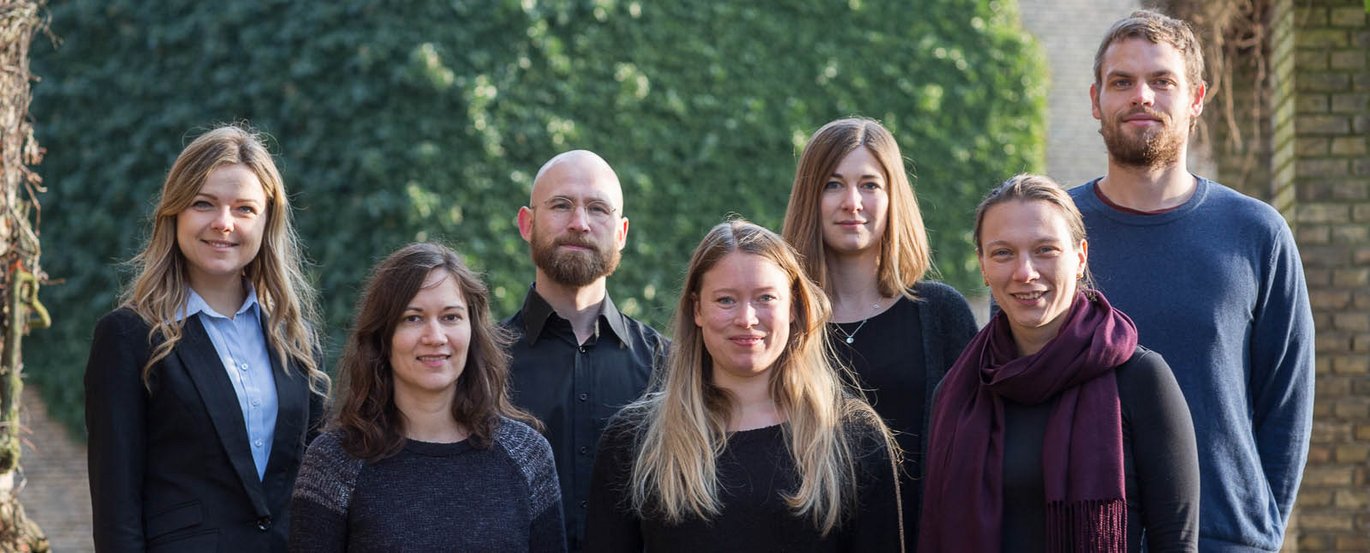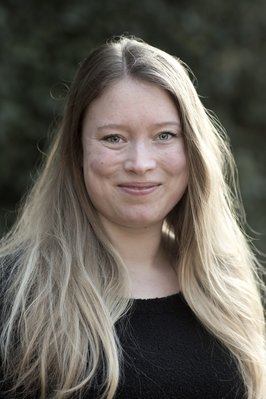PhD pressure: So little time, so much work – so what about quality?
Generally speaking, AU’s PhD students are satisfied with their degree programmes, and they are strongly committed to their research projects. But the number of PhD students who feel stressed has risen, according to the 2017 PhD programme quality survey, which also shows that PhD students do not always find their courses and their work commitments at their departments relevant.

The results of the survey
1,739 current and former PhD students participated in the survey, corresponding to a response rate of 75 per cent.
This is the second time the survey has been carried out at AU. The first time was in 2013.
Satisfaction
92 per cent of the students are generally satisfied with the academic content of their PhD programme.
85 per cent are generally satisfied with the quality of their research work.
Supervision
81 per cent are generally satisfied with the quality of the doctoral supervision they receive.
90 per cent feel that their supervisor acknowledges their efforts.
92 per cent believe that their relationship with their supervisor is characterised by mutual respect.
Part of the community?
77 per cent feel that they are part of a community of researchers at AU.
84 per cent feel that they are respected as co-researchers.
64 per cent think that they have good opportunities for co-authoring articles.
Courses, research abroad and teaching
76 per cent think that the courses offered give them opportunities to strengthen their general research competencies.
53 per cent find that the courses offered give them an opportunity to strengthen the specific research competencies required for their projects.
81 per cent feel that research abroad benefits their research projects.
79 per cent feel that research abroad is worth the effort in terms of academic benefit.
82 per cent feel that they benefit academically from work they perform in addition to their research products.
51 per cent feel that the work they perform for their departments is detrimental to their PhD studies.
75 per cent are satisfied with their teaching load.
Work pressure and loneliness
17 per cent experience strong stress symptoms.
14 per cent feel lonely at the workplace.
34 per cent feel that their work has a negative effect on their private lives.
33 per cent feel exhausted.
Stress and work pressure are particularly pronounced at Arts and Science and Technology.
Motivation
93 per cent say that they are passionate about their research.
93 per cent say that they are deeply interested in their subject.
Every fourth year, AU asks its PhD students to evaluate their doctoral programmes and their work and study conditions, and the result of the most recent survey was published in December 2017. Litten Sørensen Rosen, a PhD student at the Department of Biomedicine and acting chair of AUPA, the PhD association at AU, was particularly interested in the conclusions of the survey.
“The result is positive overall, and very much in line with the national analysis of PhD programmes from last year. But there are some things that need to be looked at if we’re going to create even better PhD programmes,” she says.
Stressed-out and burnt-out
One of the results she noticed immediately was that the number of PhD students who experience severe symptoms of stress has increased from 13 to 17 per cent since the last time the PhD survey was performed at AU four years ago.
“A third of the PhD students feel exhausted, and just as many report feeling that their work as PhD students has a negative effect on their private life. That’s not good enough,” says Rossen.

Litten Sørensen Rossen, acting chair of AUPA .
Photo: Lars Kruse
One part of the explanation, she explains, is that Danish PhD students have less time to complete their degrees than their counterparts abroad. Rossen and her fellow students have three years in which to complete their PhDs, while programmes last four years or more in many other countries.
Time for research
In the course of those three years, Danish PhD students must not only complete their research projects. Teaching and other work at their departments are also obligatory. According to the national PhD analysis from last year, PhD students spend 54 per cent of their time on their own research.
READ MORE: Have we got the right kind of PhD degree programme?
That the many obligatory non-research elements of the PhD programme consume up to half of students’ available time may be one of the factors contributing to stress, Rossen thinks.
Less relevant courses
76 per cent of the PhD students at AU responded that the PhD courses offered contribute to strengthening their general research competencies to a great extent or to some extent. While 23 per cent stated that this was only true to a lesser extent or not at all. And the PhD students’ evaluation of the relevance of their courses in relation to their individual research projects was even more lukewarm.
“It’s worth looking at whether the courses are more something you take because you have to, and not because you think it’s relevant.”
Rossen acknowledges that the high degree of specialisation among PhD students can make it difficult to ensure that all of the courses offered are equally relevant for all.
“But 30 ECTS credits is a lot if it’s not relevant to your research project.”
By the same token, the up to 280 annual hours of work PhD students are contractually obliged to perform for their departments should also be reevaluated, according to Rossen.
“Does this improve the quality of a PhD programme – is this what creates good researchers? It’s important to acquire research competencies, but the departmental work and the courses are not always beneficial,” she says.
Major burden at some departments
52 per cent of the PhD students responded that non-research work for their departments has a negative effect on their PhD studies. But there is considerable variation across faculties. At the Faculty of Science and Technology, the figure is 62 per cent. Rossen is not surprised.
“At some departments, PhD students have a heavy teaching load, and that’s clearly something that can contribute to stress, when you also have to focus on your own research at the same time,” she explains. Rossen adds that graduates of the PhD programmes have been asked whether or not the total amount of departmental work they performed during their doctoral studies was greater or less than the mandated 840 hours. 27 per cent responded that they performed more than 840 hours of work in addition to their research projects, while 38 per cent indicated that they performed less.
Personal ambitions and the pursuit of a good CV
“As a PhD student, you want to do the best possible job on your research. It’s partially about personal ambition, but it’s also awareness of the fact that you need a good CV if you want an academic career,” Rossen explains.
But the deadline for submission is set in stone – even though unforeseen events can happen, for example experiments that fail.
In these situations, really good doctoral supervision is crucial, Rossen stresses, which brings her to another issue which she thinks deserves more attention.
More focus on supervision
The majority of the PhD students indicated that they are satisfied with their supervisor.
“But if you look at what students who have fallen behind on the deadline for their projects point to as contributing factors, a number single out inadequate supervision (34 per cent, ed.) or low-quality supervision (28 per cent, ed.). Both figures have risen in relation to the last survey from 2013,” explains Rossen.
“There ought to be more focus on whether the supervision we receive is good enough,” she concludes.
Rossen also suggests that one way to reduce the strain on PhD students would be to make PhD programmes more flexible.
“And then continually assess whether the elements which are included in the PhD programme genuinely increase its quality.”
The results of the survey
1,739 current and former PhD students participated in the survey, corresponding to a response rate of 75 per cent.
This is the second time the survey has been carried out at AU. The first time was in 2013.
Satisfaction
92 per cent of the students are generally satisfied with the academic content of their PhD programme.
85 per cent are generally satisfied with the quality of their research work.
Supervision
81 per cent are generally satisfied with the quality of the doctoral supervision they receive.
90 per cent feel that their supervisor acknowledges their efforts.
92 per cent believe that their relationship with their supervisor is characterised by mutual respect.
Part of the community?
77 per cent feel that they are part of a community of researchers at AU.
84 per cent feel that they are respected as co-researchers.
64 per cent think that they have good opportunities for co-authoring articles.
Courses, research abroad and teaching
76 per cent think that the courses offered give them opportunities to strengthen their general research competencies.
53 per cent find that the courses offered give them an opportunity to strengthen the specific research competencies required for their projects.
81 per cent feel that research abroad benefits their research projects.
79 per cent feel that research abroad is worth the effort in terms of academic benefit.
82 per cent feel that they benefit academically from work they perform in addition to their research products.
51 per cent feel that the work they perform for their departments is detrimental to their PhD studies.
75 per cent are satisfied with their teaching load.
Work pressure and loneliness
17 per cent experience strong stress symptoms.
14 per cent feel lonely at the workplace.
34 per cent feel that their work has a negative effect on their private lives.
33 per cent feel exhausted.
Stress and work pressure are particularly pronounced at Arts and Science and Technology.
Motivation
93 per cent say that they are passionate about their research.
93 per cent say that they are deeply interested in their subject.
- Read the report

